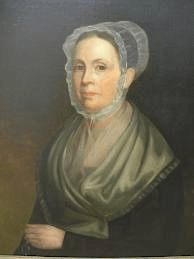Abigail Mott facts for kids
Abigail Lydia Mott Moore (born August 6, 1795 – died September 4, 1846) was an important American woman. She was a Quaker, which is a type of Christian faith. Abigail was also an abolitionist, meaning she worked to end slavery. On top of that, she was a strong supporter of women's rights.
Contents
Early Life and Schooling
Abigail Mott was born on August 6, 1795, in Cow Bay, Long Island. She was the fifth of seven children in her family. Her parents were Adam and Ann Mott.
Abigail went to the Nine Partners Boarding School. This school was in what is now Millbrook, Dutchess County, New York. Her grandfather, James Mott, helped start the school. It was run by the Society of Friends, also known as Quakers.
Abigail's brothers, James Mott and Richard Mott, also went to this school. In 1811, Abigail followed in their footsteps. She became an assistant teacher at the Nine Partners Boarding School.
Marriage and Family Life
While teaching at the boarding school, Abigail met another teacher named Lindley Murray Moore. They fell in love and got married in 1813. After their wedding, they moved to Rahway, New Jersey. There, they started their own Quaker school.
In November 1815, Abigail and Lindley moved to New York. Their first child, Edward Mott Moore, was born there. Abigail had eight children in total. Sadly, only five of them lived past the age of three.
Later, the family faced money problems. This led Abigail and her family to move to Rochester. They built a two-story house and began a new life as farmers.
Becoming an Activist
Abigail and her husband Lindley were both teachers for many years. In 1815, they managed a school in New York. This school was run by the Friends Monthly Meeting.
By 1820, their salaries were cut. This made Abigail and Lindley open their own boarding school for boys. They first opened it in Flushing, and then in Westchester Village, New York.
In 1831, they decided to stop teaching. They wanted to start a new life as farmers. This extra time allowed them to get more involved in the anti-slavery movement.
- In 1836, Abigail joined the Farmington Quarterly Meeting. Her sister-in-law, Lucretia Mott, was also there. This group strongly believed in ending slavery. Abigail was the clerk, or secretary, for the women's meeting.
- In 1837, an orphaned toddler was found wandering in Rochester. Abigail joined other women in Rochester to help. They created the Rochester Orphan's Asylum to care for children.
- In 1838, Abigail and Lindley, along with other abolitionists, founded a group. It was one of Rochester's first anti-slavery societies. It was called the Rochester Anti-Slavery Society.
Her Death
Abigail Mott became sick with tuberculosis. After being ill for several months, she passed away on September 4, 1846. She was 51 years old. People remembered Abigail as someone who was full of life. She deeply enjoyed spending time with her family.
Important Books She Wrote
Abigail Mott wrote several important books during her life. One of her most famous books was "Biographical Sketches and Interesting Anecdotes of Persons of Colour." It was printed and sold by Mahlon Day in 1826.
This book was divided into sections. Each section told stories about different people Abigail had heard about. Some stories were told by the person themselves. Others were told by Abigail. The main goal of this book was to show how bad and unfair slavery was. The stories were very personal. They showed how slavery affected different groups of people. The book included stories from both African Americans and Native Americans.
Another book with a similar message was "Narratives of Coloured Americans." This book was written in 1875. It was published by William Wood and Company. This book also collected many stories. Most of them were told by people of color themselves. Both of Abigail's books aimed to show the many negative effects of slavery. They encouraged people to stand up and make a difference.
Abigail also wrote other works, including:
- Observations on the Importance of Female Education
- The mother and her children : or, Twilight conversation
- Biographical Sketches and Interesting Anecdotes of Persons of Color, To Which Is Added, a Selection of Pieces in Poetry
- Remarks on the Present Mode of Educating Females: Being a Copious Abridgement of Miss Hannah More's Strictures on Female Education.
See Also


